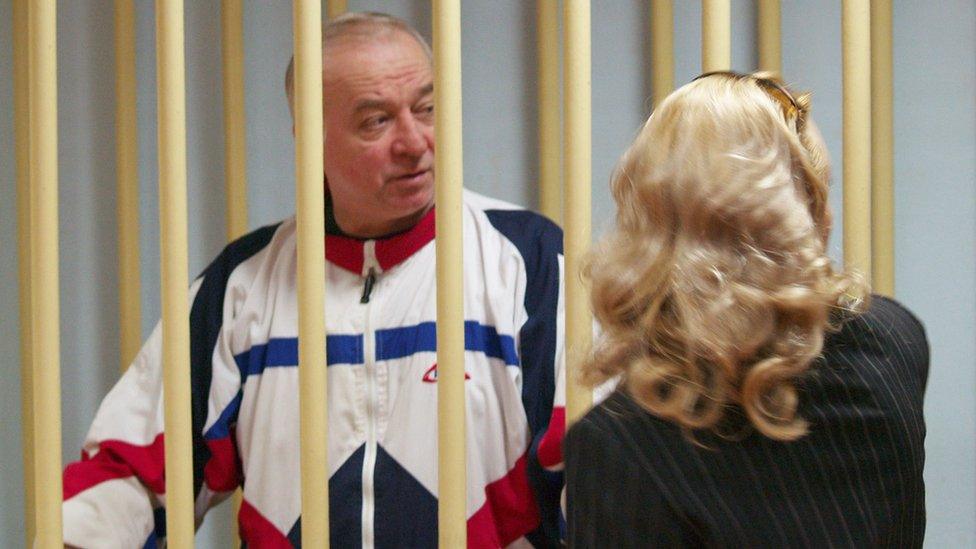Russian spy: Police name officer injured in attack
- Published
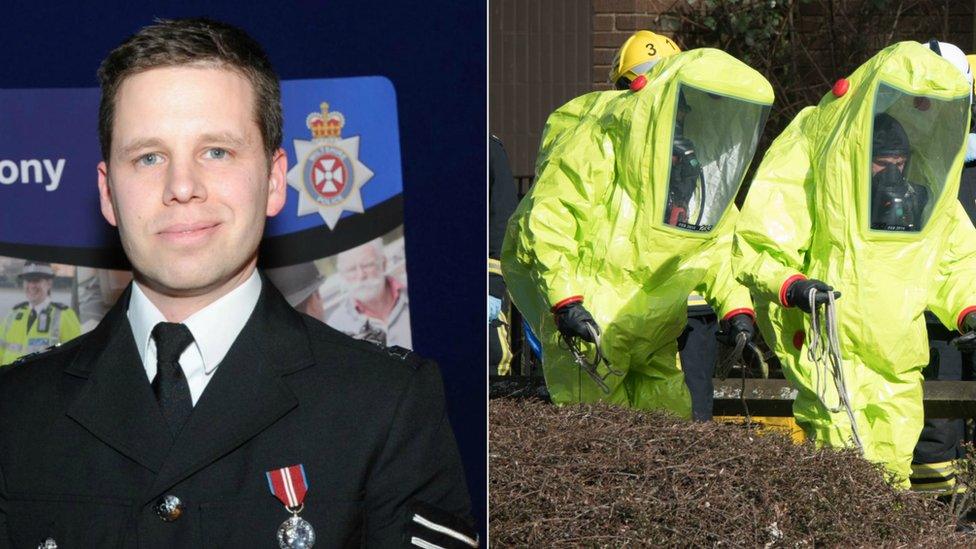
Detective Sergeant Nick Bailey is stable after intensive care treatment following the incident
The officer injured in the nerve agent attack has been named by police as Det Sgt Nick Bailey.
The officer, 38, who was in intensive care following the incident, is now "stable and conscious", Wiltshire's chief constable Keir Pritchard said.
Ex-Russian spy Sergei Skripal and his daughter, Yulia, are still critically ill after being found collapsed on a bench in Salisbury on Sunday.
Counter-terrorism officers are working to find the origin of the nerve agent.
Mr Pritchard said Det Sgt Bailey was sitting up and was "very anxious" and concerned.
"I very much hope Nick will be on his feet back at work very soon," he told the BBC. "We desperately miss him.
"He's a great character. He's a huge presence in Wiltshire Police, well-liked, well-loved, a massively dedicated officer.
"He's not the Nick that I know, but of course he's receiving a high level of treatment."
Prime Minister Theresa May said her thoughts were with Det Sgt Bailey.
"The events of Sunday are a stark reminder, if ever one was needed, of the dangerous situations our emergency services face, and the dedication and courage they display every day in order to keep us safe," she added.
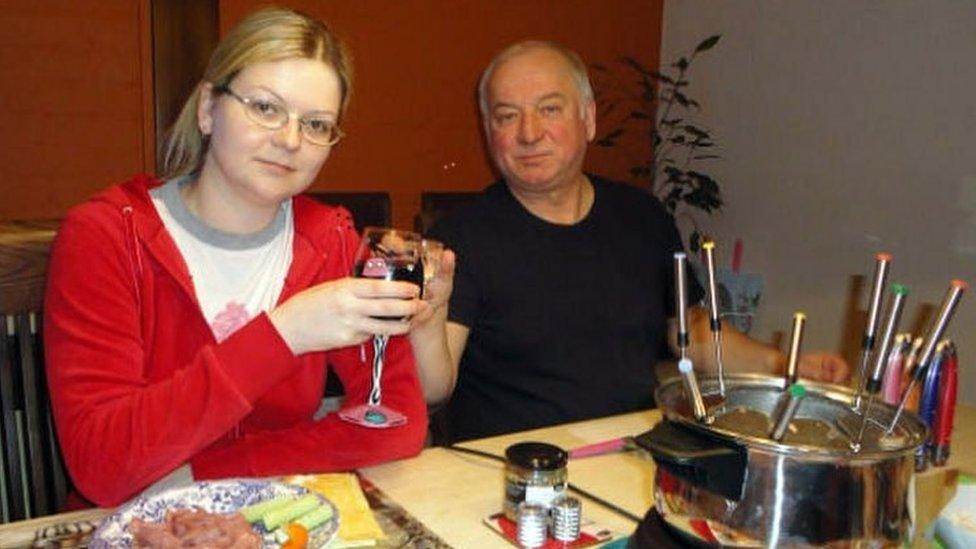
Ex-Russian spy Sergei Skripal and his daughter, Yulia, are still critically ill
Earlier, Home Secretary Amber Rudd said the attempted murder of Mr Skripal and his daughter was a "brazen and reckless" act.
She refused to speculate on whether the Russian state might have been involved in the attack, saying the police investigation should be based on "facts, not rumour".
Russia has denied it was involved.
Meanwhile, a doctor who was one of the first people on the scene has described how she found Ms Skripal slumped unconscious on a bench, vomiting and fitting. She had also lost control of her bodily functions.

Analysis
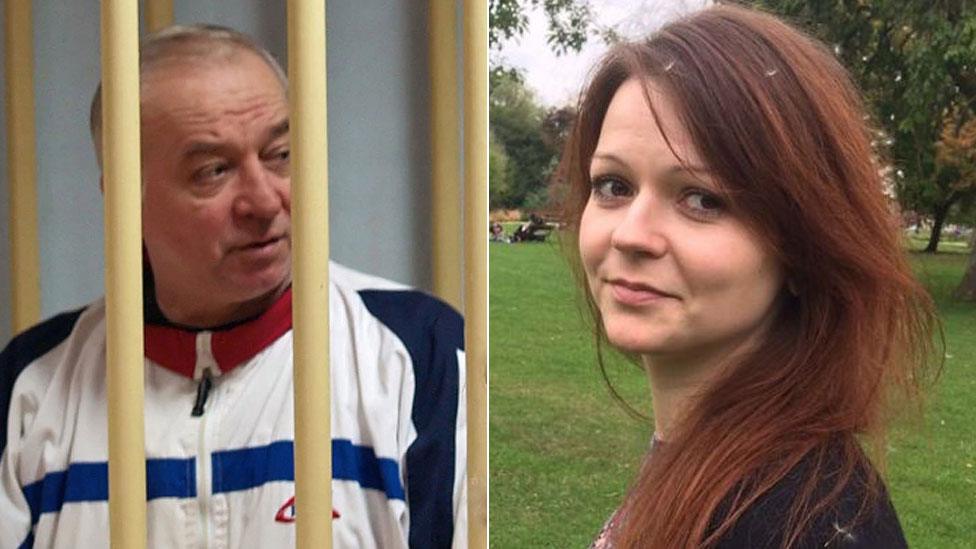
Mr Skripal, 66, and his daughter Yulia, 33, were found unconscious
By Gordon Corera, BBC security correspondent
The fact the nerve agent is "very rare" will help the investigation narrow its focus.
Making nerve agents and delivering them requires considerable infrastructure and the more unusual the agent the easier it will be to locate which country, even which laboratory, might be involved.
That combined with police leads on who delivered the agent will form the basis for a determination of responsibility, along with any other intelligence that can be gathered.
It may take days - even weeks - for the government to be confident enough to make a public statement, because it will not want to risk getting any details wrong.
But if suspicions about Russia are confirmed, then some kind of action seems inevitable.
The legacy of the 2006 Litvinenko case shows that expelling diplomats alone may not be regarded as much of a deterrent to future acts.
Economic sanctions on the Russian elite may have more bite, but would require greater political will.

The doctor, who asked not to be named, told the BBC she moved Ms Skripal into the recovery position and opened her airway, as others tended to her father.
She said she treated her for almost 30 minutes, saying there was no sign of any chemical agent on Ms Skripal's face or body.
The doctor said she had been worried she would be affected by the nerve agent, but added that she "feels fine".
Russian spy attack: What we know so far
Mr Skripal, 66, was convicted of passing secrets to MI6 but was given refuge in the UK in 2010 as part of a "spy swap".
It is known that he and his 33-year-old daughter had visited the Mill pub and Zizzi restaurant in Salisbury on Sunday afternoon, before they were found collapsed on a bench near the Maltings shopping centre.
BBC correspondent Leila Nathoo said there had been "a flurry of activity" outside Mr Skripal's Salisbury home on Thursday.
She said ambulances and an incident response team were in attendance and a police tent had been put up outside the house.
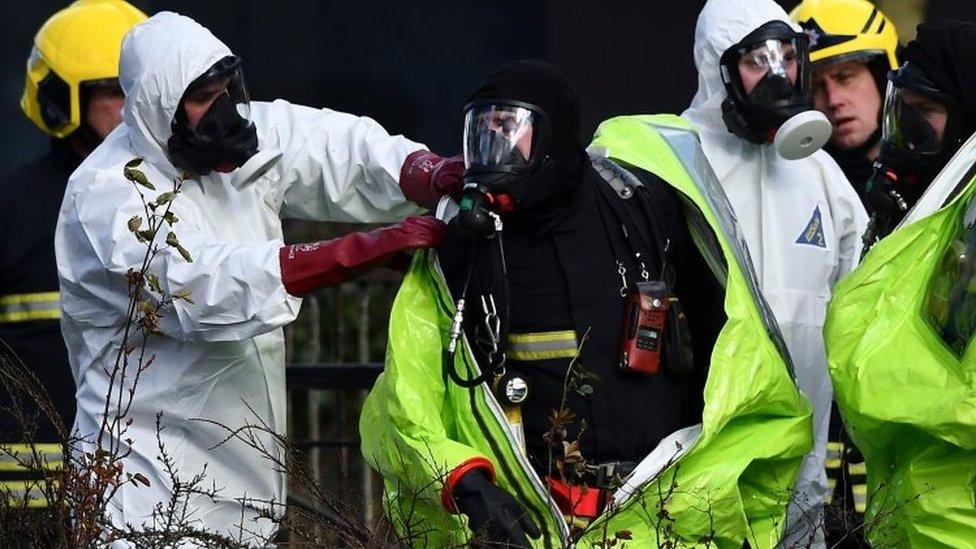
Fire brigade officers attending the scene of the incident wore biohazard suits
The graves of Mr Skripal's wife and son at a Salisbury cemetery were also taped off.
Police have yet to say if they know how and where the poison was administered.
Officers said they wanted to speak to anyone who was in the centre of Salisbury on Sunday afternoon.
They are particularly keen to hear from people who ate at Zizzi or drank in the Mill pub between 13:00 and 16:00 GMT.
Both sites remain closed to the public.
Part of a business park in nearby Amesbury also remains cordoned off.
You can receive Breaking News on a smartphone or tablet via the BBC News App. You can also follow @BBCBreaking on Twitter, external to get the latest alerts.
- Published8 March 2018
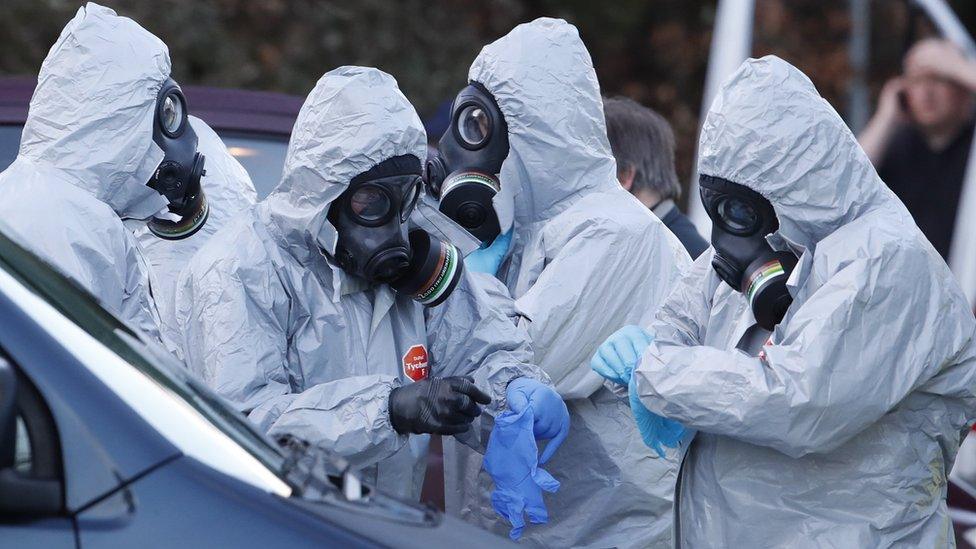
- Published8 October 2018
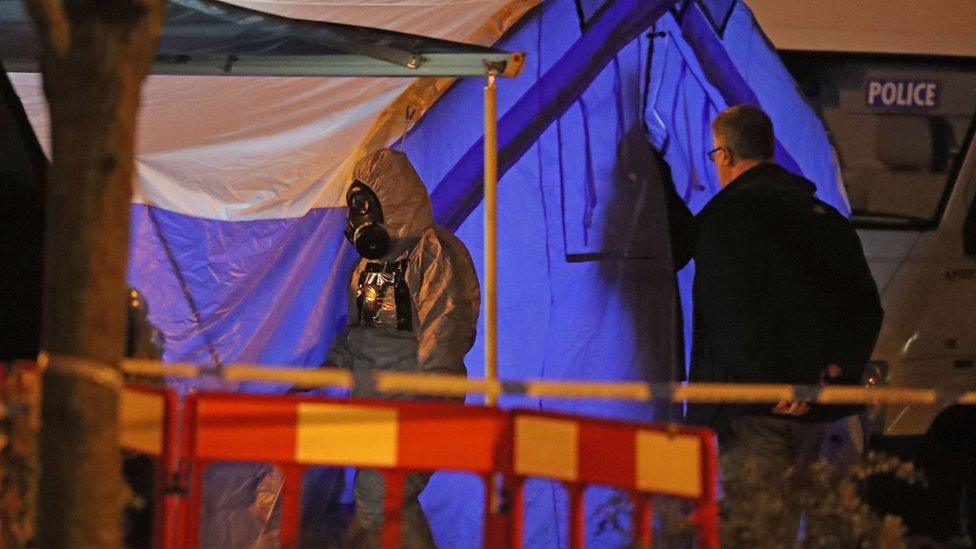
- Published7 March 2018
- Published29 March 2018
